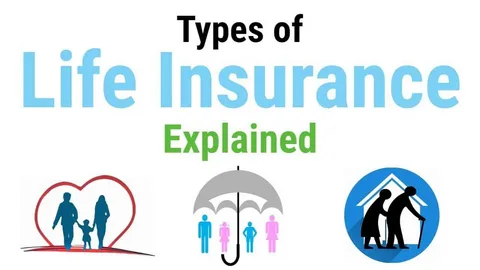Understanding Life Insurance: Types and Benefits
Life insurance is a vital financial tool that provides protection for your loved ones in the event of your passing. While it may be an uncomfortable topic to consider, understanding the various types of life insurance and their benefits can help you make informed decisions about securing your family’s financial future. This blog will explore the different types of life insurance, their advantages, and what you need to know to choose the right policy.
What Is Life Insurance?
Life insurance is a contract between the policyholder and an insurance company, where the insurer pays a specified amount of money (the death benefit) to designated beneficiaries upon the death of the insured person. This financial safety net can help cover expenses such as funeral costs, outstanding debts, and living expenses, ensuring that your loved ones are not burdened financially during a difficult time.
Why Is Life Insurance Important?
- Financial Security for Dependents: If you have dependents, such as children or a spouse, life insurance provides essential financial support, replacing lost income and covering daily living expenses.
- Debt Coverage: Life insurance can help pay off debts, including mortgages, student loans, or credit card debt, relieving your family of the financial stress of outstanding obligations.
- Funeral Expenses: The cost of funerals can be significant. Life insurance can cover these expenses, ensuring that your family does not face additional financial burdens during a grieving period.
- Legacy Planning: Life insurance can also be a tool for estate planning, allowing you to leave a financial legacy for your heirs or support charitable causes.
Types of Life Insurance
- Term Life Insurance:
- Definition: This policy provides coverage for a specified term, usually between 10 and 30 years. If the insured passes away during this period, beneficiaries receive the death benefit.
- Pros: Generally more affordable than permanent insurance, it provides straightforward coverage for a set time. Ideal for those looking to cover specific financial responsibilities, such as raising children or paying off a mortgage.
- Cons: It does not build cash value, and once the term ends, coverage ceases unless renewed, often at a higher premium.
- Whole Life Insurance:
- Definition: A type of permanent life insurance that provides lifelong coverage, as long as premiums are paid. It also accumulates cash value over time.
- Pros: Offers guaranteed death benefits, fixed premiums, and the ability to borrow against the cash value. It can serve as an investment vehicle.
- Cons: Typically more expensive than term life insurance, which may make it less accessible for some individuals.
- Universal Life Insurance:
- Definition: This flexible permanent insurance allows policyholders to adjust premiums and death benefits as their needs change. It also builds cash value, which earns interest.
- Pros: Provides flexibility in premium payments and death benefits, along with the potential for cash value growth.
- Cons: More complex than term or whole life policies, and the cash value may not grow as quickly as other investment options.
- Variable Life Insurance:
- Definition: A type of permanent insurance that allows policyholders to invest the cash value in various investment options, such as stocks and bonds.
- Pros: Offers the potential for higher cash value growth based on investment performance, alongside a death benefit.
- Cons: Investment risks are borne by the policyholder, meaning cash value can fluctuate and potentially decrease.
- Final Expense Insurance:
- Definition: A specialized policy designed to cover funeral and burial expenses. Typically, these are whole life policies with smaller face values.
- Pros: Eases the financial burden of final expenses on loved ones, ensuring that funeral costs are covered.
- Cons: Limited to covering specific expenses and may not provide broader financial protection.
Factors to Consider When Choosing Life Insurance
- Your Financial Situation: Assess your financial obligations, such as debts, living expenses, and future financial goals, to determine how much coverage you need.
- Duration of Coverage: Decide whether you need temporary coverage (term life) or lifelong coverage (permanent insurance) based on your specific needs.
- Affordability: Consider your budget for insurance premiums. While permanent insurance offers lifelong protection, term insurance is often more affordable for those with tighter budgets.
- Beneficiary Needs: Think about who will be your beneficiaries and how much financial support they will need in your absence. Ensure your policy aligns with their potential needs.
- Investment Goals: If you’re looking for an insurance policy that also serves as an investment vehicle, consider permanent options that build cash value, like whole or universal life insurance.
Benefits of Life Insurance
- Peace of Mind: Knowing that your loved ones will be financially protected in your absence brings peace of mind, allowing you to focus on enjoying life.
- Financial Planning Tool: Life insurance can be an integral part of your overall financial strategy, providing funds for education, retirement, and other long-term goals.
- Tax Advantages: The death benefit is generally tax-free for beneficiaries, and cash value growth in permanent policies may be tax-deferred.
- Supplementing Retirement Income: Some permanent life insurance policies allow policyholders to borrow against the cash value, providing a source of income during retirement.
Final Thoughts on Life Insurance
Understanding life insurance and its various types is crucial for making informed decisions that protect your family’s financial future. Whether you choose term or permanent insurance, the right policy can provide the necessary support for your loved ones during challenging times.
Before committing to a policy, take the time to assess your needs, compare options, and consult with insurance professionals if necessary. Life insurance is not just about protecting against the unknown; it’s a proactive step toward ensuring that your family’s financial wellbeing is secured, no matter what the future holds. By investing in life insurance, you can leave a lasting legacy and peace of mind for those you care about most.









